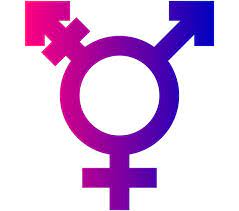Anti-androgens are gaining traction as a treatment option for various conditions in women, particularly those related to hormonal imbalances. These medications work by blocking the effects of androgens—hormones often associated with male traits—thus providing a pathway to improved health for many women. However, while anti-androgens can be beneficial, they also come with their share of side effects. This article aims to delve into the various aspects of anti-androgens, especially focusing on their side effects in females.
Understanding Anti-Androgens: A Quick Overview
Anti-androgens are medications designed to counteract the effects of androgens, which include testosterone and other hormones typically considered "male." They primarily work by attaching to androgen receptors, preventing these hormones from exerting their effects on the body. This mechanism is often employed to treat conditions linked to excessive androgen levels, such as polycystic ovary syndrome (PCOS), hirsutism (excessive hair growth), and certain types of acne.Forced Feminization ImagesAnti Estrogen Pills
The most commonly prescribed anti-androgens include spironolactone, finasteride, and flutamide. These medications can be incredibly effective, but understanding how they work is crucial for anyone considering them. In essence, they aim to restore hormonal balance, but as with any medication, the journey can come with ups and downs.
Common Uses of Anti-Androgens in Women Today
Many women turn to anti-androgens for help with a range of hormonal issues. For instance, women facing challenges from PCOS often experience symptoms like irregular periods, weight gain, and unwanted hair growth. Anti-androgens can help by reducing these symptoms, making the medication a valuable tool for many. They are also used off-label for managing severe acne that doesn’t respond to traditional treatments.
Another area where anti-androgens shine is in transgender care. For transgender women, anti-androgens can play a significant role in hormone therapy by minimizing male characteristics such as facial hair and receding hairlines. Thus, these medications not only serve medical purposes but can also enhance the quality of life for many women navigating complex hormonal landscapes.
The Good, the Bad, and the Ugly: Side Effects Explained
While anti-androgens can provide relief from hormonal symptoms, they are not without side effects. Some women might experience initial improvements in their symptoms, but as treatment progresses, adverse effects can arise. Common side effects include breast tenderness, menstrual irregularities, and fatigue. It’s essential to weigh these potential downsides against the benefits, as every woman’s experience will vary.
On the flip side, some side effects can be more severe, leading to concerns about long-term use. For instance, some women might experience liver dysfunction or significant changes in mood. It’s vital for anyone taking these medications to maintain open communication with their healthcare provider to monitor these potential issues effectively.
Hormonal Changes: What to Expect on Anti-Androgens
Starting anti-androgens can bring about significant hormonal changes in a woman’s body. Many users may notice alterations in their menstrual cycle, such as changes in the frequency or heaviness of their periods. Some may experience lighter periods or even amenorrhea (the absence of menstrual cycles) altogether. Understanding these changes can help set realistic expectations and reduce anxiety related to the treatment.
Moreover, women may also experience changes in libido, which can be perplexing. Some may find an increase in sexual desire, while others may face a decrease. It’s essential to remember that these variations are entirely normal and part of the adjustment phase as the body adapts to the new hormonal landscape created by anti-androgens.
Mood Swings and Mental Health: The Emotional Impact
The emotional rollercoaster that can accompany hormonal changes is often overlooked. Mood swings can be a notable side effect of anti-androgens, as the body adjusts to altered testosterone levels. Some women report feelings of anxiety, irritability, or even depression. It’s essential to monitor these feelings closely and maintain open lines of communication with mental health professionals, especially if these mood changes become overwhelming.
Additionally, women with pre-existing mental health conditions should approach anti-androgens cautiously. While these medications can alleviate physical symptoms, the emotional side effects can complicate mental health management. It’s crucial to have a supportive network and consider therapy or counseling as a complementary approach to medication.
Physical Side Effects: Weight Gain and Acne Issues
One of the more common physical concerns among women using anti-androgens is weight gain. While some may find that their weight stabilizes due to reduced androgen levels, others may experience an increase. This can be discouraging, especially for women already struggling with body image or weight-related issues. It’s essential to adopt a holistic approach, focusing on diet and exercise, alongside medication.
Acne can be another puzzling side effect. While anti-androgens are often prescribed to treat acne, some women may experience a temporary worsening of their skin condition before improvement occurs. This initial breakout can be frustrating, but it’s usually a sign that the body is adjusting to the medication. Patience is key, and consulting with a dermatologist can provide additional strategies to manage skin issues during this transition.
Long-Term Effects: What You Should Know Beforehand
Considering long-term anti-androgen use requires careful thought and discussion with your doctor. While many women benefit from these medications, long-term effects can include potential impacts on liver function and metabolic changes. Some studies suggest an increased risk of certain conditions, such as osteoporosis, due to hormonal alterations. It’s essential to have regular check-ups to monitor any changes that may arise over time.
Moreover, the psychological implications of long-term use should not be underestimated. Some women report feeling dependent on the medication for managing their symptoms, which can lead to anxiety about discontinuation. Hence, discussing long-term plans with healthcare providers can help set appropriate expectations and reduce any potential discomfort associated with the thought of stopping treatment.
When to Consult Your Doctor: Red Flags to Watch For
Keeping track of your body’s responses while on anti-androgens is crucial for ensuring your safety and well-being. Women should be vigilant for red flags such as severe abdominal pain, jaundice (yellowing of the skin), or significant mood changes. These symptoms may indicate adverse reactions that require immediate medical attention. Consulting your doctor is essential if you experience these or any other concerning symptoms.
Additionally, if you notice that your symptoms are not improving or are worsening despite adherence to the medication regimen, reaching out to your healthcare provider is crucial. Adjustments in dosage or even a change in medication might be necessary to find the right balance for your unique hormonal needs.
Navigating the world of anti-androgens can be overwhelming but also empowering. These medications offer hope and relief for many women dealing with hormonal imbalances. However, it’s essential to remain informed about potential side effects and changes that may arise during treatment. Open communication with healthcare providers can ensure that women not only understand their options but also feel supported throughout their journey. As with any medication, knowledge is power, and being proactive about one’s health is the best approach.


